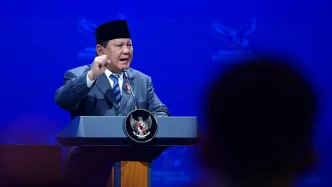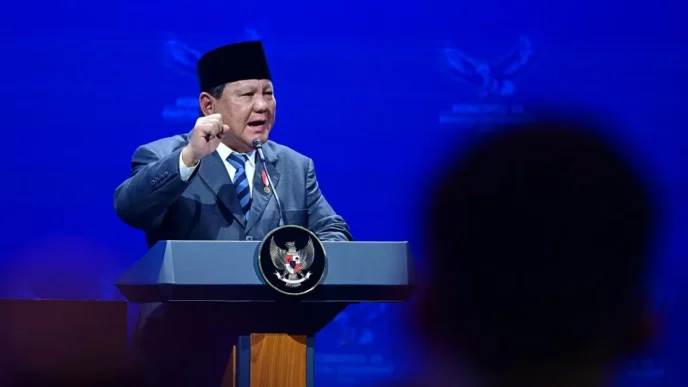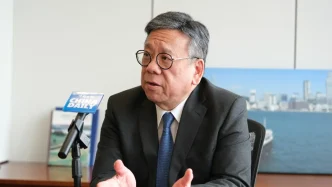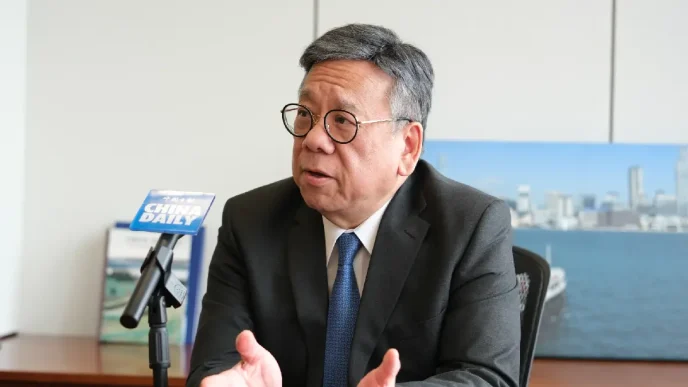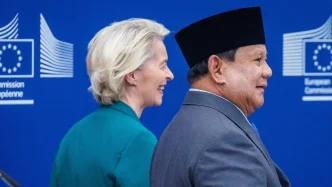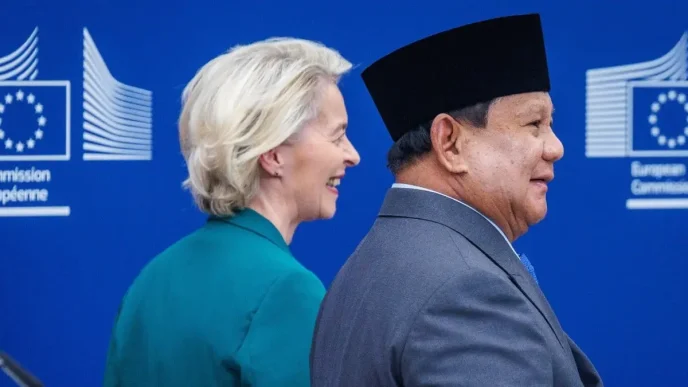By Maria Rina Santoso, South East Asia Correspondent
Intense public outrage has erupted in Indonesia following a court verdict that handed a relatively light prison sentence to businessman Harvey Moeis in one of the nation’s most significant corruption scandals. The Attorney General’s Office (AGO) has now appealed the decision, seeking a harsher penalty amid claims that the ruling fails to deliver justice for staggering state losses estimated at Rp 300 trillion (US$18.5 billion). This case, involving a state-owned tin mining company, highlights ongoing challenges in Indonesia’s fight against graft and raises questions about the judiciary’s ability to address high-profile crimes.
The controversy centres on Moeis, a prominent coal businessman and husband of actress Sandra Dewi, who was convicted of corruption and money laundering linked to PT Timah, Indonesia’s largest state-owned tin miner. While prosecutors had demanded a 12-year sentence, the Jakarta Corruption Court imposed only 6.5 years in prison, along with fines and restitution orders. Critics argue that this outcome undermines public confidence in anti-corruption institutions, potentially exacerbating perceptions of impunity among the elite. As the AGO pushes for an appeal, the case underscores the delicate balance between legal processes and societal demands for accountability in a country grappling with widespread graft.
Background to the Scandal
Indonesia’s anti-corruption drive has long been a cornerstone of its democratic reforms, yet cases like this one reveal persistent vulnerabilities. The PT Timah scandal dates back to 2015, involving illegal mining activities in the Bangka Belitung region, where private entities exploited state concessions for personal gain. According to official records from the AGO, the irregularities included the irregular leasing of tin processing equipment, illicit payments to unauthorised miners, and extensive environmental damage. These actions are alleged to have caused state losses totalling Rp 300 trillion, a figure that dwarfs many national development budgets—equivalent to nearly 65 per cent of the funding required for the Nusantara Capital City project, Indonesia’s ambitious plan to relocate its capital.
Moeis’s role emerged as a key link between PT Timah and private smelter PT Refined Bangka Tin (RBT), operating under the state-owned firm’s permits. Court documents, as reported by trusted sources, describe him as a representative facilitating these operations, though not in an official executive capacity. The judges in the initial trial justified the lighter sentence by arguing that the offences did not warrant the full severity demanded by prosecutors, citing mitigating factors related to his position. However, this rationale has sparked debate, with legal experts suggesting it may reflect inconsistencies in how corruption cases are adjudicated.
To provide context for international readers, PT Timah is a state-controlled entity responsible for managing Indonesia’s vast tin resources, a sector critical to the national economy. Corruption in such enterprises not only drains public funds but also poses risks to environmental sustainability and economic stability. The case is one of several high-profile prosecutions under Indonesia’s Corruption Eradication Commission (KPK), established in 2002 to combat graft, but recent years have seen criticisms of its effectiveness amid political interference.
The Court’s Decision and Public Backlash
The Jakarta Corruption Court’s verdict, delivered early last week, sentenced Moeis to 6.5 years in prison, alongside a Rp 1 billion fine and Rp 210 billion in restitution. This outcome fell short of the prosecution’s expectations, prompting immediate reactions on social media and from public figures. Former Coordinating Minister for Politics, Legal and Security Affairs, Mahfud MD, a respected voice in Indonesian politics, took to X (formerly Twitter) to denounce the sentence as “illogical” and detrimental to the public’s sense of justice. He advocated for life imprisonment in cases of massive corruption and the confiscation of assets to repay state losses, sentiments echoed by thousands of online users.
Social media platforms have amplified the discontent, with X users expressing frustration that Moeis might benefit from remissions for good behaviour, potentially shortening his term. One post, for instance, highlighted the irony of a perpetrator in a case costing billions escaping with what many view as a lenient punishment. Such reactions illustrate the growing role of digital spaces in shaping public discourse on corruption, though it is important to note that these expressions represent individual opinions and may not reflect verified evidence.
The AGO’s decision to appeal, announced on 27 December, was explained by spokesperson Harli Siregar as a response to the verdict’s failure to provide a “sense of justice.” This move has been welcomed by anti-corruption advocates but has also drawn scrutiny from the Judicial Commission, an independent oversight body. The Commission stated it would investigate potential ethical violations in the court’s handling of the case, citing the decision’s role in causing “turmoil in society.” If confirmed, such investigations could lead to reforms in judicial practices, though at this stage, no evidence has emerged to substantiate claims of misconduct.
In total, the PT Timah case has resulted in convictions for 14 defendants, including former PT Timah president director Mochtar Riza Pahlevi Tabrani. These outcomes demonstrate the breadth of the scandal, which spanned from 2015 to 2022 and involved systematic abuses in mining concessions. The environmental toll alone—estimated at Rp 271.07 trillion in damage—highlights the broader implications for Indonesia’s ecosystems, particularly in resource-rich areas like Bangka Belitung.
Analysis: Implications for Indonesia’s Anti-Corruption Framework
This case raises critical questions about the efficacy of Indonesia’s legal system in tackling corruption, a issue that has plagued the nation since the fall of the Suharto regime in 1998. While the KPK has secured notable convictions, critics argue that sentencing disparities—such as the one seen here—erode trust in institutions. If the appellate court imposes a heavier sentence, it could signal a strengthening of anti-graft measures; conversely, upholding the original verdict might fuel perceptions of elite protectionism. It is worth noting, however, that no evidence has been presented to confirm allegations of bias, and such claims must be treated with caution to avoid defamation.
Economically, the scandal’s repercussions extend beyond immediate losses. Indonesia’s tin industry, a key export driver, faces potential reputational damage that could deter foreign investment. Analysts suggest that if similar cases lead to enhanced oversight, they may result in improved governance, though estimates of long-term economic benefits remain unconfirmed and speculative. For instance, recovering the Rp 300 trillion in losses could theoretically bolster public infrastructure, but this depends on successful asset seizures and restitution processes.
Politically, the episode intersects with broader debates on accountability under President Prabowo Subianto’s administration, which has pledged to intensify anti-corruption efforts. Public figures like Mahfud MD, who ran unsuccessfully as a vice-presidential candidate, have used the case to advocate for systemic reforms, including harsher penalties for white-collar crimes. Yet, presenting all sides fairly, government spokespeople have defended the judiciary’s independence, emphasising that decisions must adhere to legal standards rather than public pressure.
Culturally, the scandal touches on Indonesia’s diverse society, where corruption is often viewed as a barrier to equitable development in regions like Bangka Belitung, home to ethnic communities reliant on mining livelihoods. Reports from trusted sources, such as Reuters, indicate that environmental damage has disproportionately affected local populations, potentially exacerbating social inequalities. To maintain cultural sensitivity, it is essential to frame this not as an indictment of any group but as a call for balanced policies that protect both economic interests and community well-being.
Wider Context and Potential Reforms
Looking ahead, this appeal could catalyse reforms in Indonesia’s anti-corruption laws, perhaps drawing from international models like those in Singapore or the UK. If the courts demonstrate greater rigour, it may restore public faith; if not, it could intensify calls for institutional overhauls. The involvement of figures like Moeis, linked to the entertainment industry, also highlights how corruption permeates various sectors, underscoring the need for cross-industry vigilance.
The Harvey Moeis case exemplifies the tensions between justice, politics, and public sentiment in modern Indonesia. As the appeal progresses, its outcome may shape the nation’s ongoing battle against graft, with implications for economic stability and democratic governance. Observers will watch closely, hoping for a resolution that upholds the rule of law without succumbing to speculation or bias.









